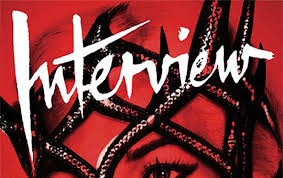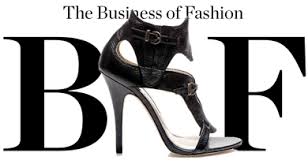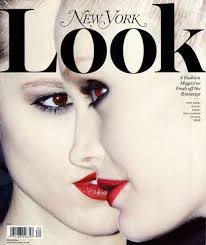SETS
 Renee Fleming as Rusalka
Renee Fleming as Rusalka Das Rheingold
Das Rheingold Madame Butterfly
Madame ButterflyIt's only a couple of years old, but Anthony Minghella's production of Madame Butterfly is already on its second revival at English National Opera, where it opens the Sky Arts 2008 season in stylish form.
The production remains extremely handsome and atmospheric. Minghella looks to the theatrical traditions of the East for inspiration and comes up with numerous gorgeous tableaux, most noticeably the nocturnal close to the first act, featuring curtains of cherry blossom and gently glowing balloon lanterns as the ideal erotic backdrop to Butterfly and Pinkerton's ravishing love duet. Mimed scenes bookend the opera, with the huge swathes of red fabric being unravelled from Butterfly's dying body at the end - a particularly effective piece of imagery to end the show.
 Werther
Werther Opera Set for Pelleas et Melisande
Opera Set for Pelleas et MelisandeUsing a computer numerical controlled machine tool, MDM Props Ltd. fabricated individual sections of the set. After assembly, a steel structure was built around the final shape to make it robust enough to support the performers.
 Nabucco
Nabucco


 Tom & Frances Design Verdi’s Nabucco
Tom & Frances Design Verdi’s NabuccoDallas sculptors Frances Bagley & Tom Orr have designed an opera. It took them more than a year, and when I saw them at the dress rehearsal Wednesday November 8, 2006 they were exhausted. Excited certainly and brimming with information and enthusiasm, but seriously sleep-deprived. [...]
I tentatively asked: I don't suppose you'd want to say how much they paid you? I didn't think so. I hope it was enough. I can't imagine how much enough would be.
Frances: "It is probably not cool to say how much they paid us, but if all it had been was some designs, it would have been ok, BUT it was so much more than just designing. We worked on it every day for the last 6 months and at least twice — three days a week for a year prior. I think our
involvement was necessary for the success of it, but how much money it would take to do it again is a big question.
"It cost the Opera more in other ways also because they gave us so much support. They hired Drew Field, the technical director to work with us on the sets and the costume shop worked on this more than a usual show, partly because of our complex designs and partly because we needed guidance. The Opera and the stage director took a big risk working with artists who had no experience in stage design."
I also asked: You (or Tom) said earlier you weren't interested in doing this again, are you still not interested?
Frances answered carefully, "We can't say if we would do it again until the dust has settled and we remember what our lives used to be like." [...]
 La Damnation de Faust
La Damnation de FaustFaust Goes Techno
A still from a new high-tech production of Berlioz's Damnation de Faust, premiering this weekend at the Met. An "interactive opera," the production synthesizes performers and sets through technology: flocks of digital birds fly in sync with an aria, video grass parts its blades for oncoming soldiers, high-def water reflects a passing boat, a JumboTron mirrors a singer's love song in flames.
COMMENTS
What's cool about the Met is that you can see simulcasts of the opera at movie theaters around the country if you're interested: Live in HD
Well, what do you know. The Met is finally recognizing the existence of the downtown crowd. Took 'em long enough, particularly given how long Phillip Glass and Steve Reich operas have been selling out BAM (uh...decades!).
I saw the Glass's Voyage there some years back and the response was incomprehension. I heard one guy said, "Well, I liked it but it wasn't really opera".
No doubt this has something to do with James Levine's waning influence (and his slow steady stream of arrests).
Anyone up for seeing Alban Berg's Lulu?
Another article about the production.
Techno-Alchemy at the Opera
This sort of spectacle-producing technology is more often used by performance artists and by companies like Cirque du Soleil. Perhaps not surprisingly, Cirque’s Las Vegas production “Kà” and this “Faust” share a director: the Canadian Robert LePage, who is making his Met debut.
Between Heaven and Hell, a World of Morphing Imagery
The imposing, four-tiered wall of Carl Fillion’s set is subdivided into 24 cubicles. When individual screens drop into place, the set becomes a continuous surface, like some supersize flat-screen television, on which enormous images can be projected.
Audio slideshow
 Aus einem Totenhaus
Aus einem Totenhaus


 The stage set for the opera performance of Leos Janacek’s Aus einem Totenhaus is the hardware of the performance. The stage set is developed as an abstract machine and does not aim to look for direct references to the libretto itself. It is an instrument used by the director to produce time and spatial sequences of the action on the stage.
The stage set for the opera performance of Leos Janacek’s Aus einem Totenhaus is the hardware of the performance. The stage set is developed as an abstract machine and does not aim to look for direct references to the libretto itself. It is an instrument used by the director to produce time and spatial sequences of the action on the stage.New Orleans Opera Related Stuff
This is a set for anything I've made, or photographed at the New Orleans Opera, whether it be for fun or for work.
_________________________________________
COSTUMES
 Faust costume at the The Egg
Faust costume at the The Egg Salome
Salome Chinese Opera costume
Chinese Opera costume Chinese Opera
Chinese Opera Cendrillon
Cendrillon 'Don Giovanni' at Washington National Opera
'Don Giovanni' at Washington National Opera"Don Giovanni is sort of a personification of the sex drive," says John Pascoe, director and designer of the new production of Mozart's classic, Don Giovanni, which opened last weekend at the Washington National Opera. "He's just undiluted sexuality, the idea of 'I'm going to get what I want: sex.'" And that, says Pascoe, is what Giovanni's costume is meant to express. "It's very much an internal statement rather than being something limited to a very specific period."
The chest-baring suit, with its fetishistic undertones, is not, Pascoe concedes, something too many singers could don. But Erwin Schrott, who sings the role Nov. 1 and 4, and Ildar Abdrazakov, who performs it Nov. 7, 10, 13 and 16, more than fill it out.
Though he himself identifies as gay, the 58-year-old, British-born Pascoe stresses there is no explicit homoeroticism in his direction of Giovanni. Still, he notes, "the important fact [to viewing] any great work of art is, 'What does this work of art have to do with my life? To be very specific about it, what relevance does it have to do with gay life? And I think it has an enormous interest for the gay world.
"The story that Don Giovanni tells us," he continues, "is of this man who's on a sexual rampage...without concern to the effect he has on other people. It takes two seconds to translate the reality of what Mozart has given us into any of our own lives or any of our own experiences. It's dealing with the idea of sexual freedom vs. responsibility."
Still, notes Pascoe, "[The opera] goes to a very specific place in personal development, one that is not concerned at all with human relationships and is only concerned with sex. We all know there is such a thing as Sexaholic Anonymous and that there's a reason for it." [MetroWeekly.com - Nov.07]
_____________________________________________
PERFORMERS
 (l-r) Mariusz Kwiecien, Polish baritone; Maija Kovalevska, Latvian soprano; Rolando Villazón, Mexican tenor; Nathan Gunn, American baritone; Danielle de Niese, Australian-born soprano; Erwin Schrott, Uruguayan bass; Anna Netrebko, Russian soprano.
(l-r) Mariusz Kwiecien, Polish baritone; Maija Kovalevska, Latvian soprano; Rolando Villazón, Mexican tenor; Nathan Gunn, American baritone; Danielle de Niese, Australian-born soprano; Erwin Schrott, Uruguayan bass; Anna Netrebko, Russian soprano.HIGH C IN HIGH-DEF
Meet seven international opera stars who are putting to rest the “fat lady sings” cliché, via live broadcasts to movie theaters.
Opera is ready for its close-up, Mr. DeMille. Or, rather, Mr. Gelb, for Metropolitan Opera general manager Peter Gelb is responsible for bringing this high art to the silver screen. Since 2006, when the Met first broadcast live in high definition to selected movie theaters—now up to about 850 screens in 36 countries — audiences have been able to feel on intimate terms with world-class singers. “It’s like seeing somebody eye to eye,” says the Australian-born soprano Danielle de Niese, whose performance this past January in Gluck’s Orfeo ed Euridice was beamed out to far-flung aficionados. Given the new craze, it’s a pleasure to have artists who are as easy on the eye as on the ear. A clear leader is Russian soprano Anna Netrebko, whose vocal and physical charms will be staged and screened in the Met’s new production of Offenbach’s Les Contes d’Hoffmann in December, opposite Rolando Villazón, the dashing Mexican tenor. Offstage, her fiancé is the Uruguayan bass Erwin Schrott, who this winter was seducing audiences and maidens alike as Mozart’s Don Giovanni. Another leading man fond of the unbuttoned shirt is American baritone Nathan Gunn, who will be flexing his voice in the upcoming Met season as Papageno in Mozart’s Die Zauberflöte. Joining him in the lower registers, Polish baritone Mariusz Kwiecien will portray the toreador Escamillo in the Met’s new production of Carmen, opening on New Year’s Eve. He’ll be teamed later with Maija Kovalevska, the Latvian soprano, whose high cheekbones and shimmering voice in the role of Micaëla will no doubt cause swooning in cineplexes around the world. Popcorn and Bizet? Why not? [VanityFair.com - May 09]
 Renee Fleming
Renee FlemingBring the Noise!
This season, superstar soprano Renée Fleming claims the city as her own, rocking the Met and appearing on the side of a bus near you.
Taking Renée Fleming for granted is far too easy. We should know; we’ve been doing it for years. A prominent lyric soprano for more than two decades, Fleming, 49, has been a creative force at the Metropolitan Opera since the mid-’90s. She is without question the reigning American opera singer worldwide, and one of the few to attain a broader general appeal. At a time when the memory of Beverly Sills guest-hosting The Tonight Show verges on the surreal, Fleming sings on Letterman, and Daniel Boulud has named a dessert after her.
Opera News feature
Renée Fleming is an icon. Now, let's discuss what that means. There are singers, including Fleming, who enjoy a charmed beginning, when critical approval and popular demand are bestowed as a single, delicious benediction. Some of those careers don't survive the fad. Then, there are very good singers who travel just below the radar, but their names fail to linger in the air after their final bow; they usually become the obsession of connoisseurs. And of course, there are the living legends who dominate the industry but don't pursue a larger brand outside of it. An icon enjoys a status that is more enduring than youth and, most of all, a presence in the culture that is undeniable. An icon becomes associated with a time. Twenty years from now, when people sit in their living rooms talking about opera in the '90s and aughts — after grumbling about the uncontained proliferation of director-driven opera — conversation will arrive promptly at Renée Fleming: what it meant to be Renée Fleming, how one became Renée Fleming, how nice it would have been to have a recording contract like Renée Fleming's, and whether or not it was possible to be happy as a singer if one wasn't (or was) Renée Fleming. That makes her an icon. [...]
Fleming has been a pioneer in the industry for the way she matched such a voice to a look and formed her own brand. She has given a very pretty face to her music, and in doing so, she has also given a face to the opera industry as it is perceived by a wider public that understands her as its spokeswoman. A beautiful image can do many things. As Fleming wrote in her memoir, The Inner Voice, it can prompt the purchase of a CD. It can also transform the girl next door with bouncy hair into a sexy sophisticate (as it did around the release of the Renée Fleming album). And if it's just right, it can even book a cover for Town & Country and sell a perfume. Check and check. [...]
Few sopranos can carry an evening in the theater as elegantly as Fleming can. She has held audiences in a spell of serene devastation at the end of Desdemona's willow song; defended herself desperately in the Violetta–Germont duet; and embodied the vulnerable but still unattainable beauty of Tatiana in the finale of Eugene Onegin. Fleming rarely reaches the end of a performance without having said something eloquent about her heroine. Icon or not, that gift makes her a diva of the old school and the highest rank.
 Erwin Schrott (born 21 December 1972 in Montevideo, Uruguay) is an operatic bass-baritone, particularly known for his interpretation of the title role in Mozart's Don Giovanni.
Erwin Schrott (born 21 December 1972 in Montevideo, Uruguay) is an operatic bass-baritone, particularly known for his interpretation of the title role in Mozart's Don Giovanni.Official site

Figaro's a First for NBA-loving Baritone
For baritone Erwin Schrott, who will sing the role of Figaro for the first time in the Los Angeles Opera production of Mozart's The Marriage of Figaro beginning tonight at the Dorothy Chandler Pavilion, there couldn't have been a better time to be in Southern California.
Schrott, who lives outside Milan, Italy, with his wife and daughter, is not only one of the world's most in-demand baritones, but also an NBA fan. "In Italy, everybody loves the NBA,' he said in his dressing room the Friday after Derek Fisher's last-second heroics turned the tide for the Lakers in their series with San Antonio. And Schrott announced with a smile that he had managed to get tickets to the next game, which the Lakers won.
That smile seems to be pretty much a permanent part of Schrott's personality. There are artists who suffer for their art, but the young Italian isn't one of them. He loves life, and especially the life he has as an opera singer who travels the world to perform. His only regret is that he can't spend as much time with his wife and daughter as he would like. He had just flown into Los Angeles from Montevideo, Uruguay, where he was born in 1972. He had been visiting his parents.
"I love traveling, and I love performing,' Schrott said. "I am a very happy man. If you get to do work that you love, you are very lucky, and I love my work and I love to travel. [...]
 As Don Giovanni
As Don GiovanniSure Fire
The dynamic Uruguayan bass Erwin Schrott has been making his mark internationally as Mozart’s Figaro and Don Giovanni. This month he is at the Met as Escamillo in Carmen.
On opening night of Los Angeles Opera’s 2003–04 production of Le Nozze di Figaro, partway through Act I, a dislodged light filter floated down from the flies and landed in the middle of the stage. To the Figaro that night — Erwin Schrott, looking hunky in a tank top and suspenders — the filter was merely so much rubbish on the floor of his new apartment. Staying in the scene, Schrott strolled over to the offending impurity, picked it up, crinkled it, and carried it around awhile before depositing it in a convenient nook.
“Ah, yes,” Schrott says by telephone from his home in Montevideo, “I remember that.” What was he thinking? “Nothing. I was being Figaro at the moment,” he states emphatically. “A piano can fall down to the stage, I would play it at that moment.”
It’s not difficult to believe him. Onstage, in his first Figaro, the singer projected ease and confidence; he was loose and enjoying himself. His demeanor seemed to combine equal parts charisma and a kind of Zen-like calm. Even on a bad phone connection to Uruguay, Schrott’s charm comes through loud and clear. [...]
 Sex and Blood and Mozart Don Giovanni
Sex and Blood and Mozart Don GiovanniVIENNA -- Blood. Glitzy costumes. Magnificent voices and gorgeous soloists. Clever directing.
Welcome to a very good production of Mozart's Don Giovanni.
Friday's staging at Vienna's Theater an Der Wien did not break new ground - the production first premiered in 2006.
But it has weathered well.
Directed by Keith Warner, this Don is more than a manic Casanova who has had his way with more than 2,000 women in his life. The man is funny, tender, menacing - and ultimately pitiable, as he expires on stage in a plexi-glass case smeared by his own blood, rather than renouncing his licentious life.
Much of the credit goes to Erwin Schrott, a.k.a. Mr. Anna Netrebko.
Built like a god, and with a voice to match, Schrott's Don Giovanni captivated the sellout crowd in the sculpted and gilt theater on the banks of Vienna's huge farmer's market.
Brutal? Yes, stabbing the father defending the honor of his daughter. Contemptible for the way he treats women as playthings? Surely.
But above and beyond all, Schrott's Don was human, from the beginning - as a young rake concerned only with improving his "score" - to the final moments, when old but unrepentant, he goes to his own private hell.
A sinner? Yes, but above all, a man who remains true to himself. [...]
 Opera Chic: Erwin Schrott
Opera Chic: Erwin SchrottErwin Schrott Gets Sued For Breach Of Contract By Rosenblatt Recital Series: "Gross Unprofessionalism and Disrespect", "Cowardly".
"For our audience to be treated with such gross unprofessionalism and disrespect by Mr Schrott, on two occasions, is something that shouldn’t be tolerated.
"This is a regrettable situation, but for the reputation of my Series I cannot allow artists, with no lawful excuse, to renege on their contractual commitments.
"In the seven years I’ve been running our recital series I have been impressed time and again by the dedication of singers to their art and their public. Singers such as Mr Schrott give opera a bad name and a reputation for not caring for the people that pay to hear them sing.
"I am disgusted by Mr Schrott’s callous disregard to his contractual obligations. His behaviour is cowardly and I can only wonder if he has the guts to appear on a London concert platform as this is the second time he’s backed out of appearing here.”
_____________________________________________
RELATED
 Rufus Wainwright
Rufus WainwrightInterview Magazine feature
After releasing six albums, appearing in a handful of films, and single-handedly resurrecting the songbook of Judy Garland, Rufus Wainwright took the next logical step: He spent three years writing a two-hour opera. [...]
GANZ: The opera also lasers in on the idea of the comeback, which, from Mickey Rourke to Britney Spears, is one of the most compelling tropes in our culture right now.
WAINWRIGHT: Well, in a way I’m kind of making my own comeback. I’ve been in the business now for 20 years. I’ve had my ups and downs, and I definitely have a sense—in America, especially—that once you’ve made your mark and gotten your Rolling Stone piece and your Grammy nomination, that they’re on to the next piece of meat, and they don’t necessarily like to follow the twists and turns of an artistic career. Throwing an opera at them is something they have to notice. There’s nothing subtle about it. I don’t know if it will be my big comeback, but I think it is a statement—that I am a self-sustaining, vibrant, long-term artist, and I’m not going away! And if you don’t give me credit, then the musical gods will! [...]
GANZ: I read in a New York Times profile that you saw a production of Strauss’s Elektra at the Met high on drugs. Do you recommend people come to your opera in a similar state?
WAINWRIGHT: Well, my great lesson with that was I went to the same production twice—once completely high and once completely sober—and both times were equally wonderful. Opera is above drugs and alcohol and you don’t have to be fucked up to either write it or see it. It’s about transcendentalism. It’s not of this world. So I’d suggest not being fucked up, because you’re just wasting your money.























